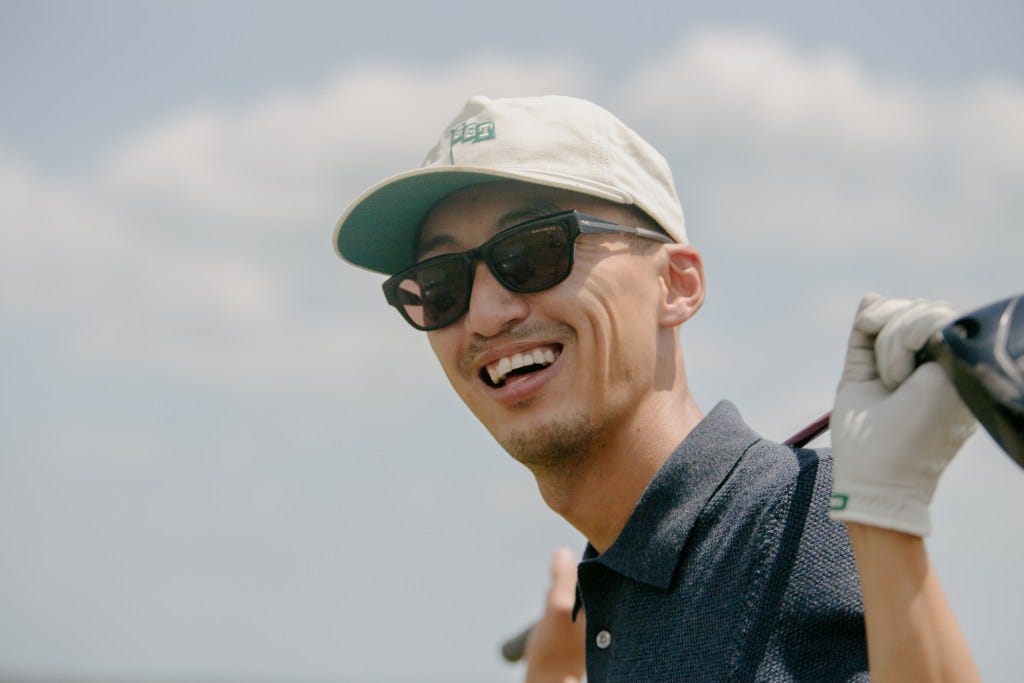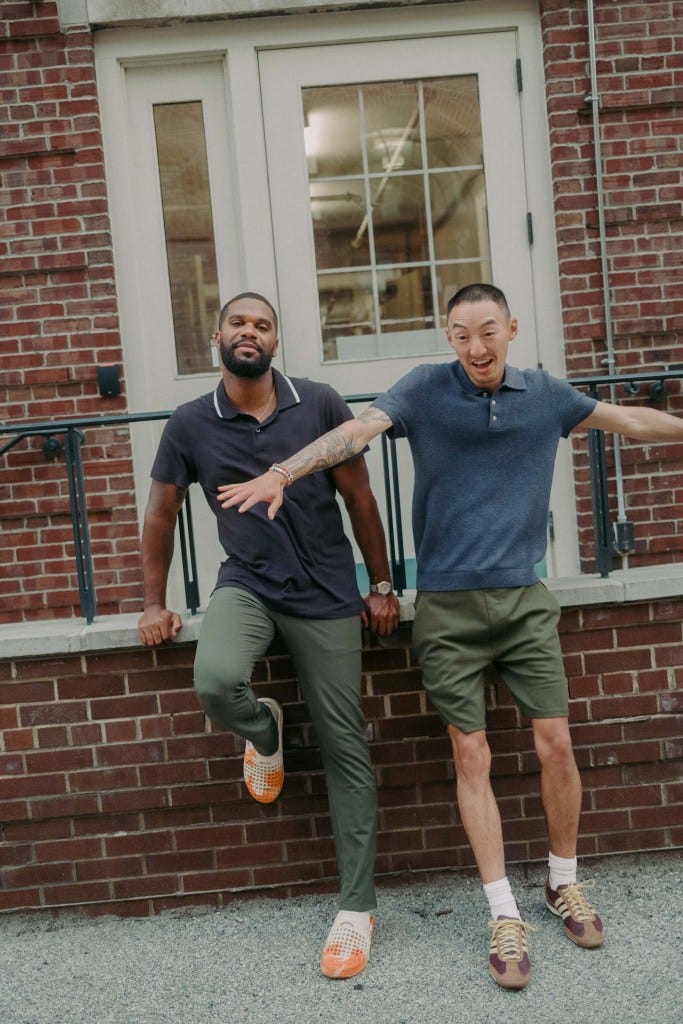The weekend before I catch up with golf podcasters Bradford Wilson and Drew Westphal, golfer Rory McIlroy loses the U.S. Open.
It is an indelible defeat, so perfectly terrible. With a two-shot lead heading into the last four holes, McIlroy missed short putts on 16 and 18; his foil, Bryson DeChambeau, made a 1-in-100 up-and-down from a bunker to win by a single stroke. In the aftermath, memes began to circulate online of Rory in the scoring room, eyes dim and face slack, a caricature of dejection.
“He’s been chasing another major since 2014,” Wilson says. “This is his life’s work. It’s everything to him. And to see him come up short like that…it’s like disappointing a parent or something.”
We’re hanging out in an Airbnb in Chicago, where Wilson and Westphal have come to interview young amateurs at the Western Junior Championship—and, naturally, play some golf themselves. In the grand tradition Guys on Golf Trips, they’re drinking cheap beer from whatever vessel happens to be available at the rental. In this case, teacups.
“For your putter to betray you on two of the last three holes…” Westphal adds, shaking his head. “Professional golfers do recover, they do bounce back. But this would take an enormous mental toll on anyone—even a guy that mentally tough.”
It’s a practiced mode for Wilson and Westphal, this casual back-and-forth about golf that’s not really about golf. Together, they make up two-thirds of the popular podcast, Group Golf Therapy (their third, Connor Laubenstein, is traveling in Spain). Over three years and 100 episodes, the trio has interviewed everyone from Macklemore to two-time major champion Lydia Ko—using golf as a vehicle to discuss mental health.
“We call ourselves ‘golf’s safe space’ for a reason,” Westphal says. “We truly want to be able to tell people’s stories through our platform.”
Before they started Group Golf Therapy, the three—all of whom played in college—were on an indefinite hiatus from the game. Then the pandemic hit. Like so many, they found respite in the relative calm of the golf course.
“Getting swept up in the conversations about social change and everything that was happening during 2020 was all-consuming,” Wilson says. “But finding golf, and finding a voice in golf, gave me purpose.”
In 2021, Wilson released a video essay, “Dear Golf”—an impassioned push for inclusivity in a game known for the opposite. Westphal saw the video and reached out.
“I knew nothing about him,” he recalls. “I sent him a couple of friendly DMs, like, ‘Yo dude, that was beautiful. Thank you.’ And then a few weeks later, I was like, ‘Have you ever thought about doing a podcast?’”
Westphal admits they had no idea what they were doing at first. But the three quickly found their groove. If Laubenstein is the head, Wilson is the heart—and Westphal the glue that holds everything together.
“Not only have we gotten better as podcasters,” Wilson says, of the difference between the first episode and the 100th. “We’ve gotten better as friends.”
It’s easy to see the pod as part of a larger cultural shift in the wake of the pandemic—a greater openness towards mental health, particularly in arenas where the concept has been something of a taboo. Like professional sports. Or groups of dudes just hangin’ out, shooting the shit.
“A lot of men reach out and and are like, ‘Yo, thanks to Group Golf Therapy, me and my boys talk about our feelings on the golf course,’” Wilson says. “I think it takes one or two people to set the standard for what’s acceptable across the board.”
“Another thing that blows my mind,” Westphal says, “is when people will message us and just spill their guts to absolute strangers. It keeps me wanting to do this, because you don’t know how many other people, who don’t send a message, are feeling those same feelings.”
Golf, Westphal suggests, is an ideal venue for real conversation. An uninterrupted stretch of time to find out, say, what’s really going on with that old friend of yours. In this context, a golf trip, like the one they’re on now, is kind of sacred: a tradition; a rite. Or, at the very least, a thinly disguised excuse to reconnect on familiar territory, in spite of all that’s changed.
“One of the things we really want to do,” Wilson says, “is go to each of our home courses and play them together. I want to see where Drew learned to play golf. I want to see where Connor learned to play golf. And I really want them to see where I learned to play golf, and share some stories. That was an early goal for us. And one that’s still out there.”






